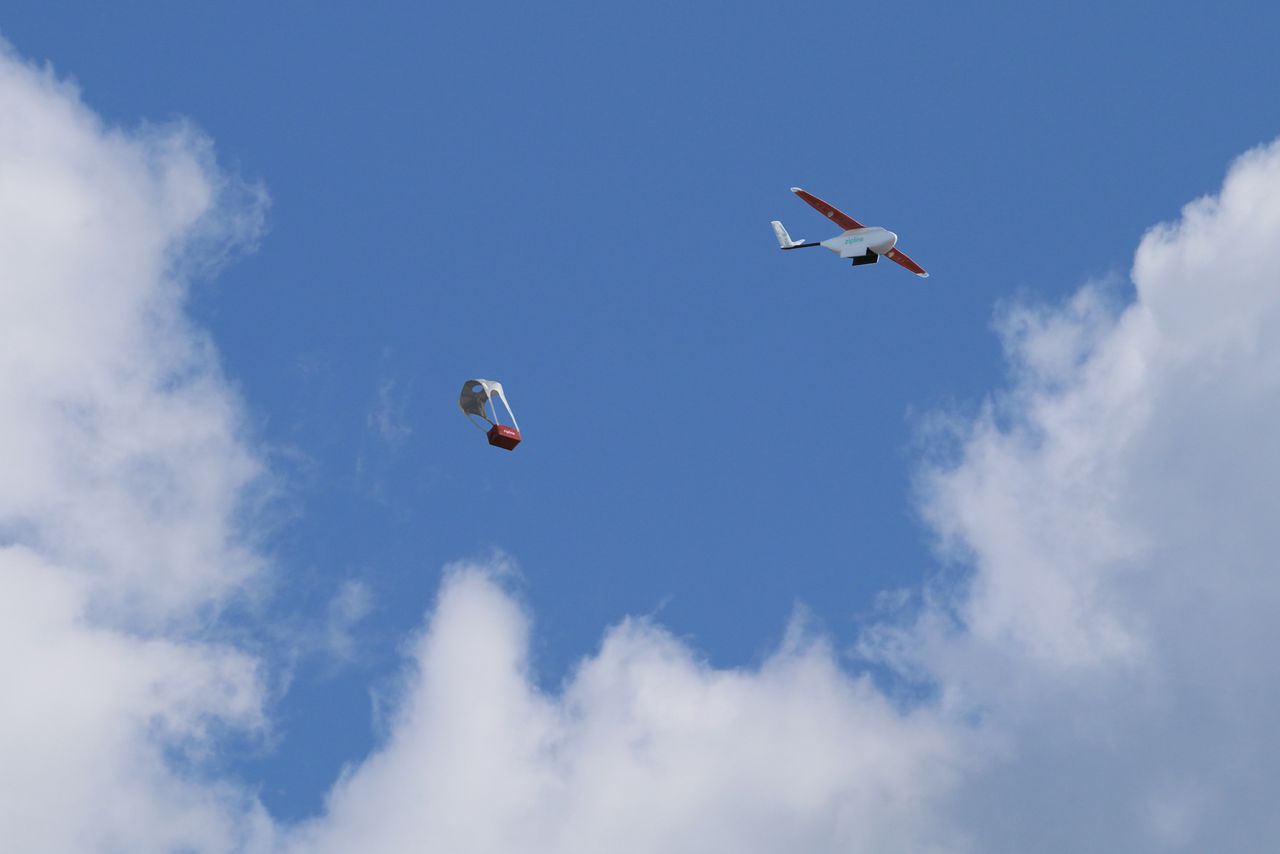Drones will begin delivering blood and medicine in the US
After launching in Rwanda, Zipline brings its fleet of medical drones to three US states

(Zipline International)
A startup that uses drones to deliver medicine and blood to remote areas of Rwanda is launching a similar program in the US. California-based Zipline will bring its drone delivery program to rural and remote communities in Maryland, Nevada, and Washington, including some Native American reservations. Zipline will announce its expansion at a White House workshop on unpiloted aerial vehicles (UAVs) Tuesday morning.
Zipline launched in 2014, with support from venture capital firms such as Sequoia Partners and Google Ventures, as well as funding from Paul Allen, a Microsoft co-founder. The company began delivering medicine and blood in Rwanda last month under a government partnership, and expects to be operational in half of the country by the end of this month. The hope is that Zipline's fleet of drones will help deliver life-saving materials to remote areas of the US, as it has in Rwanda.
"SERIOUS HEALTH OUTCOME INEQUALITIES."
"When you look at rural or isolated communities, particularly Native American populations, populations that live on islands, you have serious health outcome inequalities," says Keller Rinaudo, Zipline's founder and CEO. "There’s a linear relationship between how far away you live from a city and your expected lifespan. So our hope is that this type of technology can solve those kinds of inequalities."
While Rwanda has fully embraced drone technology as a way to spur economic growth, regulations in the US have been slower to take form. In June, the Federal Aviation Administration (FAA) finalized new rules that made it easier for commercial drone operators to receive flight authorization, though they still prevent companies from flying more than one mission at a time, and require that all UAVs remain within the line of sight of their operators.
Rinaudo says that after announcing its partnership with Rwanda in February, the White House reached out to Zipline and expressed interest in bringing its system to rural parts of the US. Zipline will apply for a waiver to the FAA regulations, and expects to begin operating within six months of receiving it. (Rinaudo hopes to be operational within a year from now.) For its US launch, the startup has partnered with three healthcare companies — Ellumen, ASD Healthcare, and Bloodworks Northwest — and has planned tentative deliveries to Smith Island, Maryland and San Juan Islands, Washington.
/cdn0.vox-cdn.com/uploads/chorus_asset/file/6290883/zipline-delivery.0.gif) Zipline
Zipline
Zipline's electric-powered drones, called "Zips," can carry up to three pounds of blood or medicine, and can fly for up to 75 miles on a single charge. Hospitals can order blood or medicine via text message, and have them delivered by parachute from a Zip. The 22-pound planes navigate using GPS and cellular networks, and can make deliveries within 30 minutes, negating the need for onboard refrigeration.
Companies like Matternet and Flirtey have developed similar drone delivery systems; last year, Flirtey completed the first FAA-approved drone delivery after flying drugs to a medical center in rural Virginia. Speaking by phone from Nairobi, Rinaudo said that Zipline is looking to expand to countries across East Africa and other middle-income regions, and that it hopes to scale up in the US "as quickly as possible." As the system matures and expands, he hopes other governments see its value.
"People think that this is impossible and completely wild," Rinaudo said. "And the reality is that it's completely possible and in fact, it's vastly simpler."
No comments:
Post a Comment